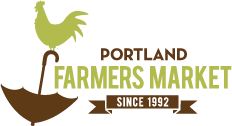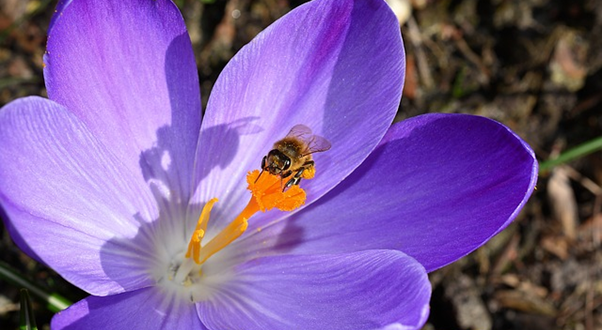Why Bee Die-Offs Matter & What You Can Do About It
By Christy Erickson, Saving Our Bees.org
What an iconic little animal the colorfully-striped, buzzy and industrious bee is to us humans. And why not? Millennia of agricultural symbiosis, punctuated by countless instances of culinary joy sourced by the black-and-amber bee’s honey, has made it a creature we cannot live without.
Under Dire Threat
Sadly, today, the danger of extinction of the bee, the “most invaluable species on the planet,” as described by EarthWatch, is a very real one. Over the last two decades, many a scientist, bee farmer, and botanist have come out to warn the world of the rapid decline of the species. Since 2006, the U.S.’s farmed honeybee population has shrunk by 40 percent, with the UK reporting an especially dire 45 percent loss of the honeybee since 2010.
If it gets worse, the devastation in bee species numbers will translate to lower crop yields and an impoverished diversity of plants on our planet. This threat looms because the bulbous-bodied arthropod is a stupendous pollinator, helping to cross-pollinate wild plants and crops, including popular favorites such as apples, coffee, and chocolate.
It is also the only insect on the globe to produce a food that humans consume — the sweet, sticky spread of honey that is in many recipes and much loved by human society.
Causes of the Decline
Scientists point to three main causes behind the serious decline in bee population numbers: powerful insecticides, the destruction of the insect’s natural habitat, and climate change. Pesticides affect the feeding behavior, developmental rate and learning processes of the winged bee. Through neurotoxins, their nest and flower recognition abilities are impaired, along with their navigation skills. The toxins also affect their immune systems, which are less able to stave off parasites and disease. As a result, massive bee die-offs have become common, as pesticide use climbs all around the world.
Urbanization and the spread of agriculture, for their part, are wiping out the hedgerows, fields, forests, grasslands and woodlands where wild bees collect pollen and drink nectar. With less space where wildflowers grow, bee populations starve and struggle.
In addition, the effects of climate change, which is characterized by extreme rainfall fluctuations, climbing temperatures and harsher weather conditions, are detrimentally affecting pollinator lifespan and practices, say environmentalists. Specifically, entomologists note, the change in climate is disrupting the natural synchronization between bees and plant life cycles.
Eager to help save the bees? Three Things You Can Do to Save the Bees
- Support Local and Organic Farmers
Acknowledge your power as a consumer, and buy from local and organic farmers to support pesticide-free practices that preserve the lives of bees. Become an intimate connoisseur of your local farmers’ market and of the producers who sell there. Ask questions of the origin of your food, farming practices, organic certifications, and their own opinions as to how the local bee is faring. Refrain from being a ne’er-do-well: be curious, be inquisitive so that your fresh understanding fuels action on your part to save the darling insects. - Become a Home Gardener
Starting your own little eco-system for ludic wildlife — think blithesome bumble bees, zippy hummingbirds and twittering butterflies — in your home is a proven healing hobby for the spirit. Not only will the bees be thankful, your stress levels will plummet as you tend to the outside, with the warm sunshine and the breeze to keep you company. Better yet, create your own edible garden or start a community garden with your neighbors! While current crops are now ready to harvest, in a few short months it will be time to start up your seeds indoors to get them ready to transplant, so why not stock up on some favorites now such as broccoli, cabbage, lettuce, and peas. - Buy Only Locally-Sourced Honey
When you support your local beekeeper, your dollars are supporting beekeeping unions that are fighting to reverse the decline in bee population numbers. As caretakers of the little bee, they understand exactly what hives need in order to thrive. They work hard to take better care of the insect than large honey production companies who only care for the bottom line. Eating local, supporting local is also ecological, as transportation’s effects on the environment are kept at a minimum.
The Bee is Worth Saving
Let’s dwell a bit on the role the winged creature plays in our hearts — spring and summer wouldn’t be the same without its fuzzy, bulbous presence. Its buzzing dance round the stigmas of flowers, to zealously collect nectar and neon pollen, has been depicted on countless nursery walls, and in our poems, rhymes, lullabies and limericks. We worship this little devil with a sting, verily, so do your part to save it.

